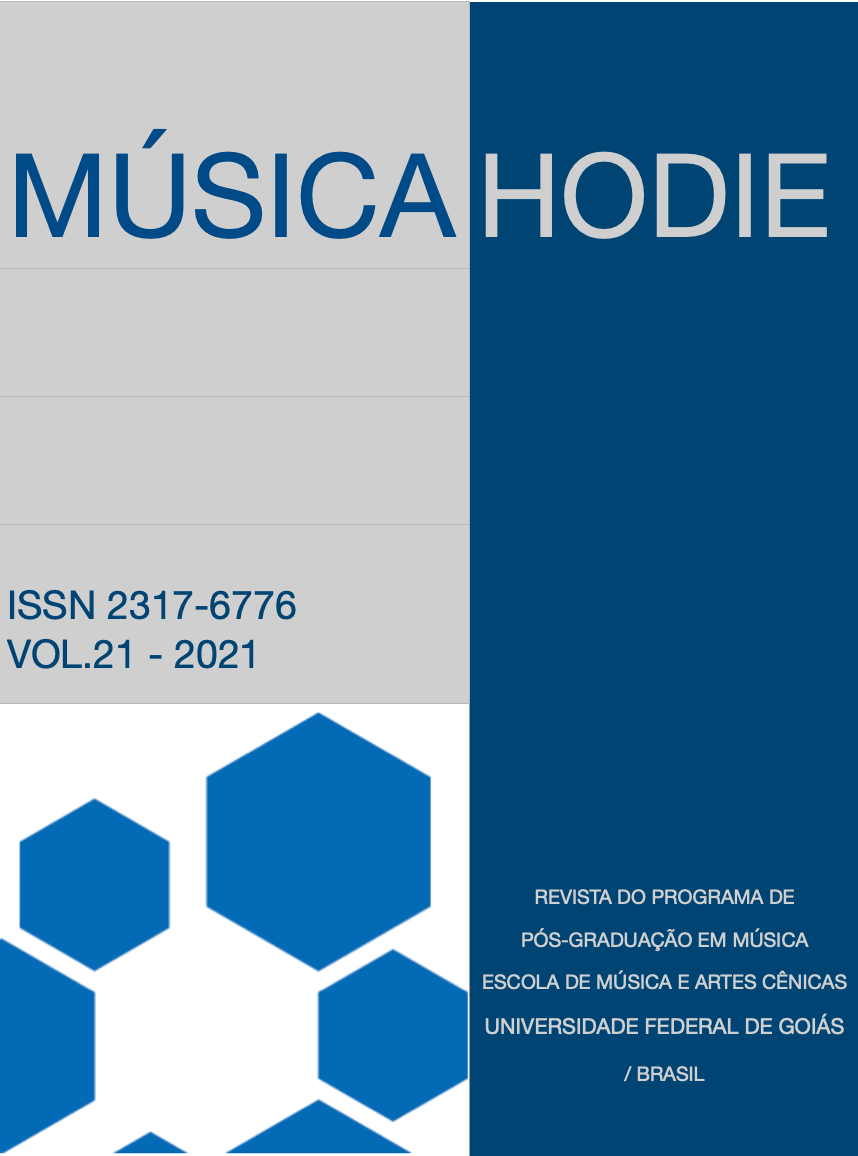Sensibilidade e racionalidade na música vocal: a questão da entonação
DOI:
https://doi.org/10.5216/mh.v21.66429Palavras-chave:
control, experiment, intonation control, singing, vocal apparatusResumo
O objetivo deste artigo foi avaliar a eficácia do controle da entonação entre os alunos do primeiro ano com especialização em música vocal. O estudo foi realizado durante o período de 2018-2019 em um dos conservatórios de Pequim (China). A amostra da pesquisa foi composta por 300 alunos do primeiro ano, dos quais 100 constituíramo grupo controle, outros 100 - o grupo experimental 1 e os últimos 100 - o grupo experimental 2. Resultados superiores dos alunos dos GEs do que dos participantes do GC resultaram da sistemática e trabalho constante na melhoria da entonação. O número total de indivíduos com baixo desempenho educacional diminuiu em vista da introdução de metodologia de treinamento inovadora que provocou a melhoria geral dos resultados acadêmicos. Foi encontrada correlação inversa entre ocontrole da entonação e o aparato vocal saudável: -0,89 para o GC, 0,78 para o GE1 e 0,81 para o GE2. A aplicação da metodologia desenvolvida permitiu aos alunos preservar a saúde das cordas vocais e melhorar as habilidades de canto.
Downloads
Downloads
Publicado
Versões
- 2021-11-14 (4)
- 2021-05-11 (3)
- 2021-04-30 (2)
- 2021-04-30 (1)















